Golden Loop Vietnam: The Ultimate Travel Guide to a Majestic Road Trip
Traveling the Golden Loop is the greatest way to see Vietnam, a nation bursting with history, beauty, and culture. Hoi An, Ho Chi Minh Road, Hue, Hai Van Pass, and Da Nang are just a few of the most gorgeous and culturally important locations in the nation this famous path winds through. Let MOTOGO Tours explore this loop.
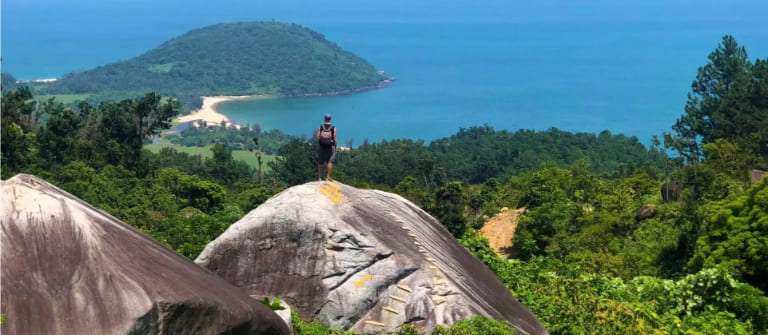
What is the Golden Loop?
Connecting many of Vietnam’s most popular locations, the Golden Loop is a picturesque road. It presents visitors with an interesting combination of historical sites, rich cultural encounters, and amazing scenery. Both local and foreign visitors, particularly those riding motorcycles to Vietnam, find great popularity in the loop. Beginning in Hoi An, it follows the Ho Chi Minh Road, Hue, Hai Van Pass, and finishes at Da Nang, so providing the ideal path to see the variety of Vietnam.
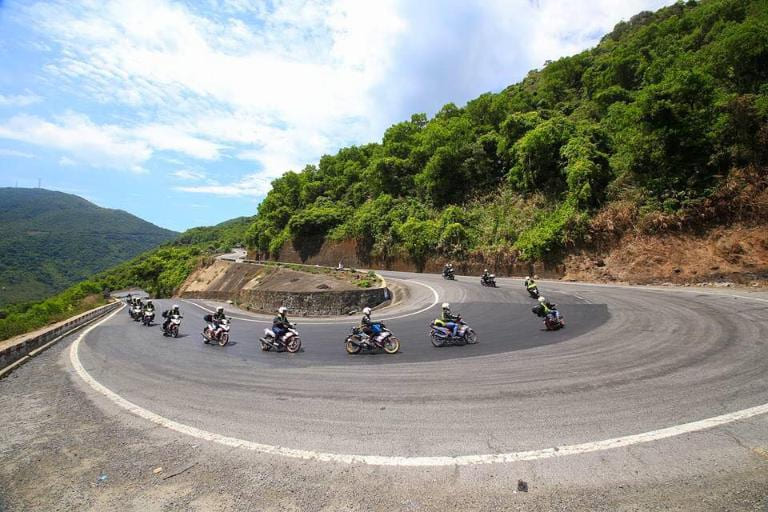
Golden Loop: Exploring Vietnam’s Iconic Journey
Showcasing amazing scenery, energetic culture, and historical sites, the Golden Loop is a spectacular motorbike trip that winds through central Vietnam. Comprising three exciting sections, this path has something for every adventurer.
- Section 1: Hoi An – Thanh My – Prao | 125km
- Section 2: Prao – A Luoi – Hue | 165km
- Section 3: Hue – Hai Van Pass – Da Nang – Hoi An | 165km
Section 1: Hoi An – Thanh My – Prao | 125km
Start your day early as you leave the ancient, bustling streets of Hoi An behind. Dawn is the only time the town enjoys a calm, tranquil environment; it is well-known among visitors from both local and beyond. Early rise is well worth it given the morning peace. You’ll shortly turn off once more to carry on the journey after momentarily joining Highway QL1A.
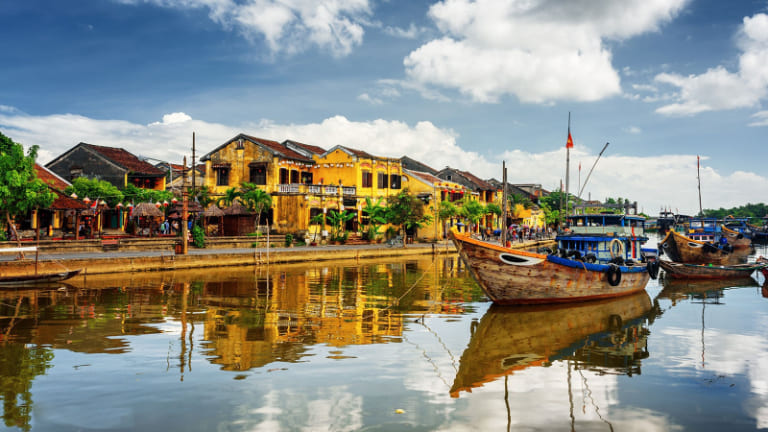
The road passes the little town of Tra Kieu, where time appears to stop, beside the southern bank of the Thu Bon River. Close here, buried under the shadow of the famous Cat’s Tooth Mountain, are the old Cham ruins of My Son. If you have time, make a diversion to the temples; early morning is the ideal time to go before the visitor traffic starts.
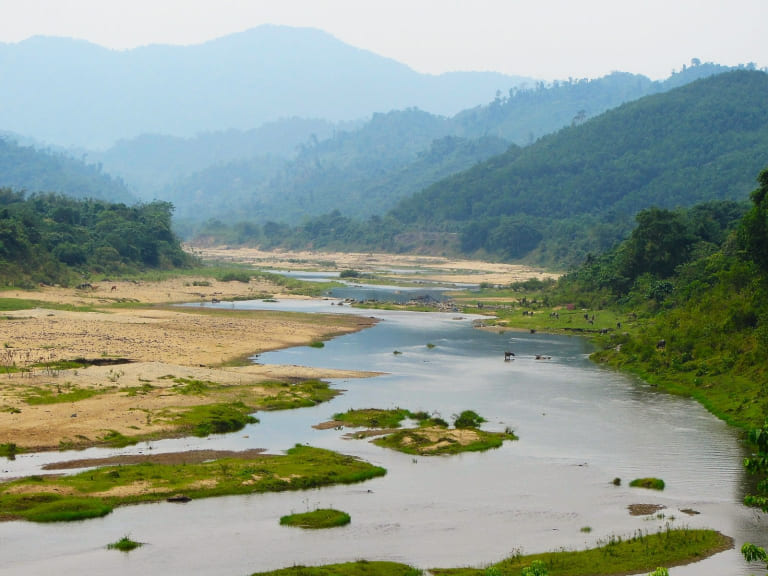
The trip continues beside the Vu Gia River across the Thu Bon River, which leads to QL14B, the main road into Thanh My. The scene changes as you head west to the verdant Central Vietnam lowlands. Driven by the fresh water pouring from the Truong Son Mountains, the countryside gleams like a recent monsoon has passed. Buffalo added to the rural appeal by wading across the fields. A side road connects to the ecotourism site Khe Lim before one reaches QL14B. It should open by the time you read this, although it was under construction when I visited.
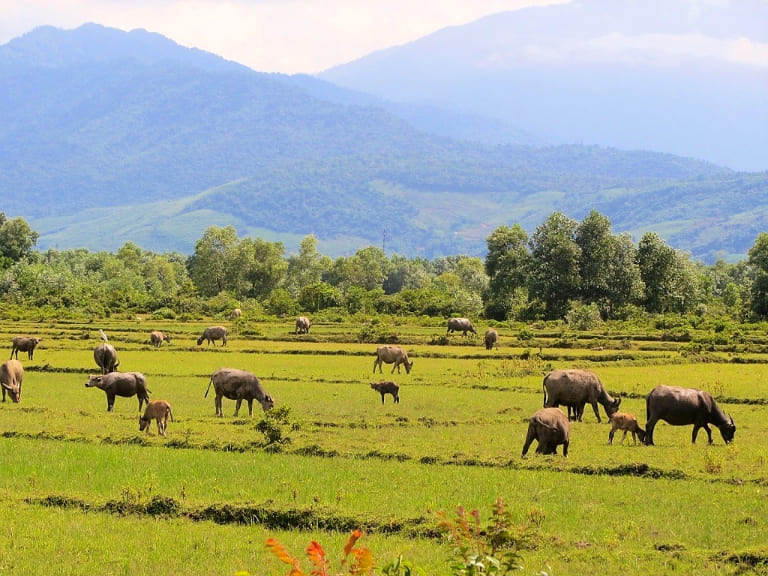
You can either keep on the main road at the QL14B junction or travel back-road over the mountains to Prao. Be ready for a lovely, if rather busier, ride as trucks and buses become apparent as you ascend the Alps. Once you get to Thanh My, you will find guesthouses for a much-needed break, snack stores, and local restaurants. The Golden Loop links here to Ho Chi Minh Road as well.
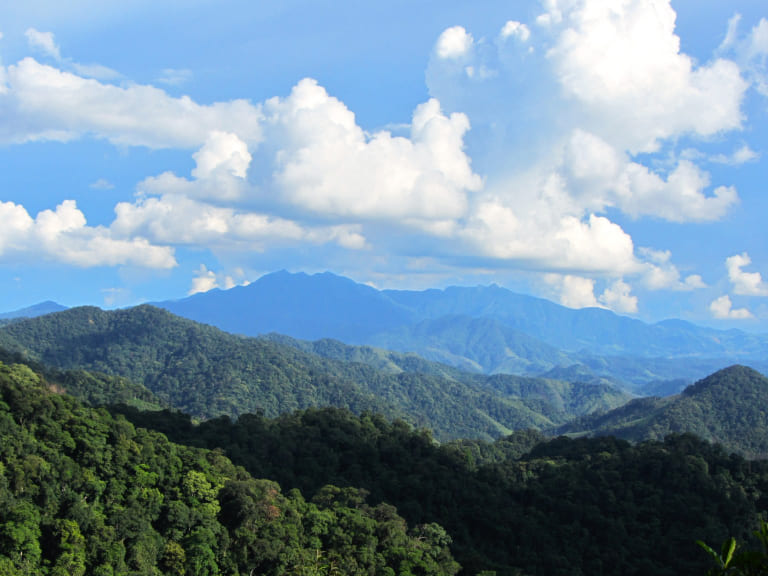
Head northwest from Thanh My across a high bridge. The Ho Chi Minh Road leaves the town behind sharply rising into the foothills. The terrain around is wide and rough, with limestone ridges covered in forests rising over deep valleys. Though the landscape is untamed, far from the adjacent metropolis of Da Nang, the traces of human development—deforestation and hydroelectric dams—are clear.
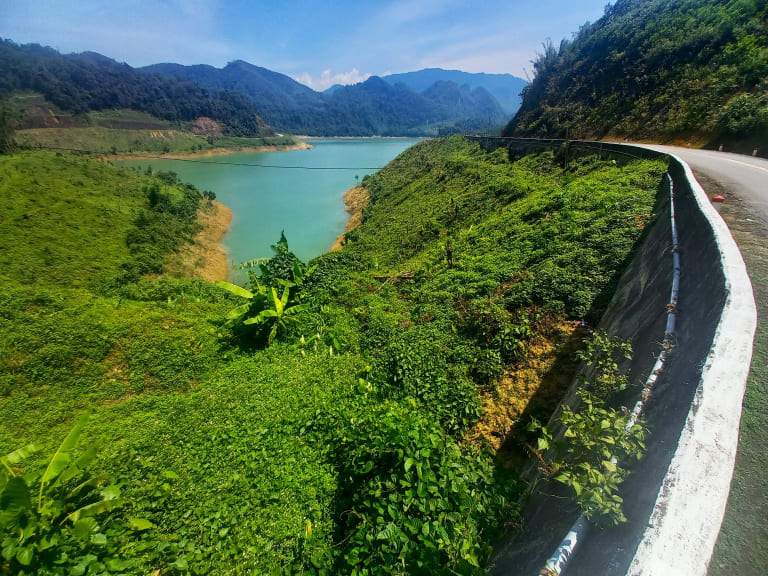
Prao’s route is an exciting roller coaster of hairpin turns across rich, vivid green mountains. The little settlement of Prao shows up in the valley following a sequence of sharp climbs and downfalls. Perfect for an overnight visit, Dung Thuy, one of the few local guesthouses along the main road, has rooms ranging from 250,000 VND every night. Along with a gas station for refills, the town boasts a range of rice and soup restaurants as well as coffee shops.
>>> Explore the Hai Van Pass Motorbike Tour: A Scenic Ride Through Vietnam
Section 2: Prao – A Luoi – Hue | 165km
Top off your fuel in Prao before you start driving. Sparsely populated, the next 100 kilometers of Ho Chi Minh Road provide some of Vietnam’s most breathtaking scenery. The route winds through steep valleys following a succession of rivers, then climbs still higher in a sequence of twisting switchbacks. With very few cars on the route, the amazing vistas of the jungle canopy seem to be yours alone.
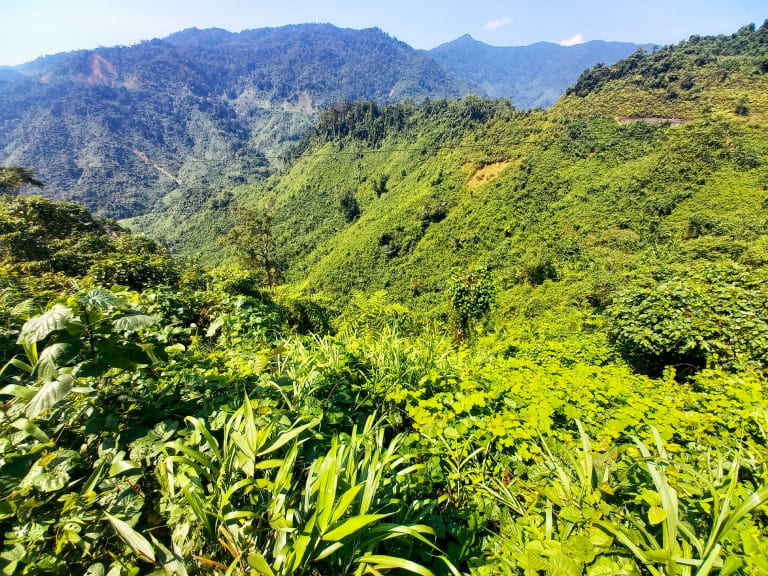
One of Vietnam’s last unspoiled areas runs across this length of road. The rivers remain glistening clean, while the ridges are still covered with forest. Only discovered in the 1990s, the area is home to the saola, sometimes known as Asian Unicorn, a semi-mythical species. Along the road, forestry cottages serve as a reminder that this far-off area of Vietnam still holds mysteries of nature and are devoted to their protection.
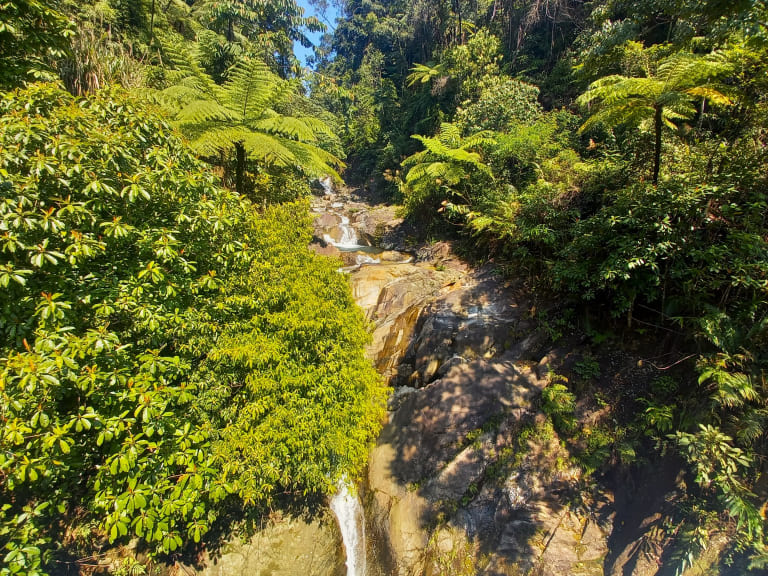
If you have time, a detour westward brings you closer to Dinh Que, a first-rate viewpoint, deep into the mountains. Given that this is a border area and it is regarded as a military zone, officials could turn you back, though. Still, the Ho Chi Minh Road itself with its breathtaking views will more than satisfy your curiosity.
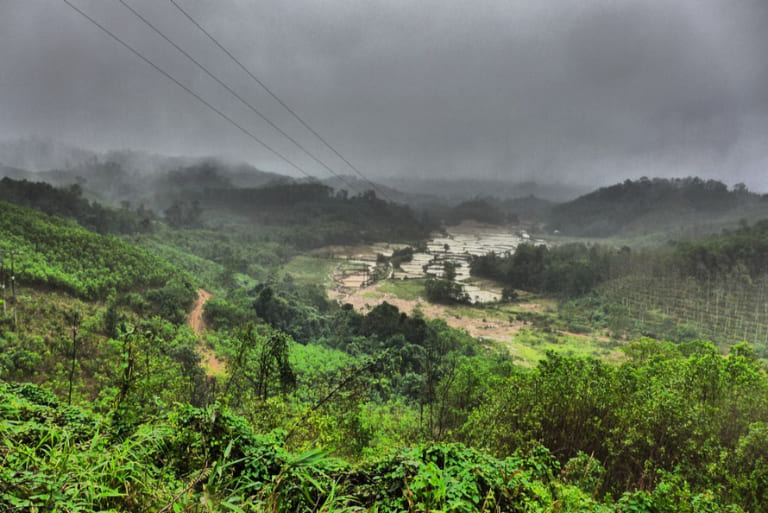
The route runs close to the Lao border before descending to A Luoi, cutting across two spooky tunnels under the slope where waterfalls tumble down into the valley. Remnants of U.S. military outposts and bomb holes still show here, the A Shau Valley, a place of major historical battle during the Vietnam War. Though the valley is quiet today, its past is still clearly felt.
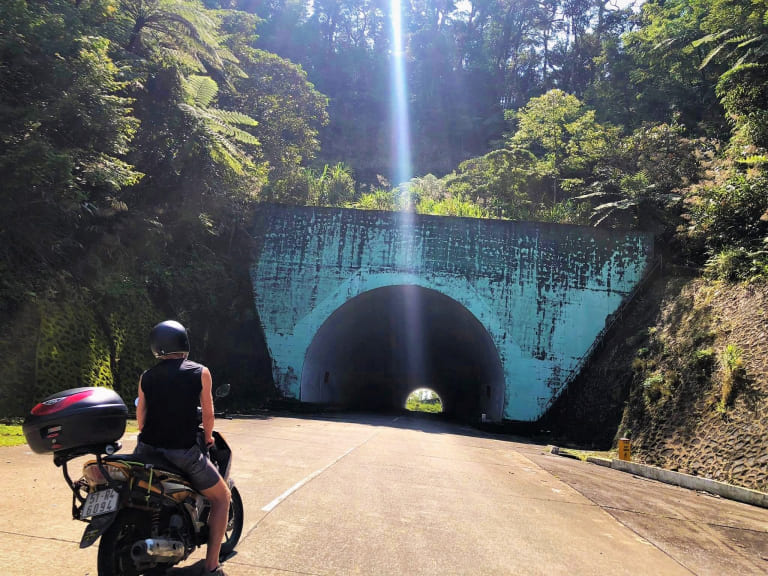
Once at A Luoi, you will discover a level terrain with farmland, rich countryside with mountains of Laos rising west. The route is nice and smooth, which gets us to QL49 and then Hue. Take a break in A Luoi if you are rushing. Although there are several guesthouses including the Do Thanh Hotel, try Paco Tua Homestay for a more real experience.
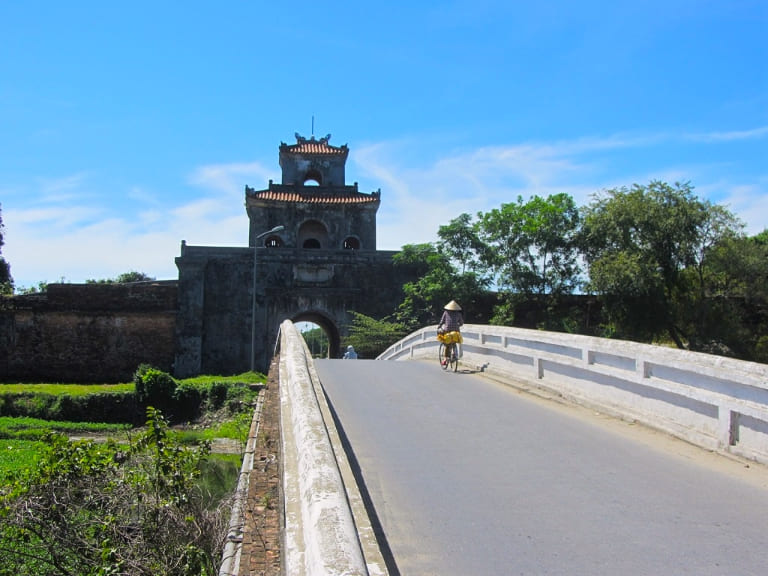
Go east from QL49 toward Hue. This 60-kilometer length travels down mountain slopes, providing views of fruit and spice trees, and transports you into the tranquil Perfume River Valley. Hue’s busy streets could seem daunting after the peace of the mountains, yet many visitors find great appeal in the city. The cuisine is first-rate; if you have time, tour the Imperial Palace and regal mausoleums scattered around the region.
Section 3: Hue – Hai Van Pass – Da Nang – Hoi An | 165km
From Hue to the Hai Van Pass, your two choices are the more picturesque, calmer path via QL49B or the direct road along Highway QL1A. I advise the later if you’re not in a hurry. You will find the Thuan An Peninsula, a long, sandy length with some of Hue’s nicest beaches and peaceful cafes, as you go north out of Hue.
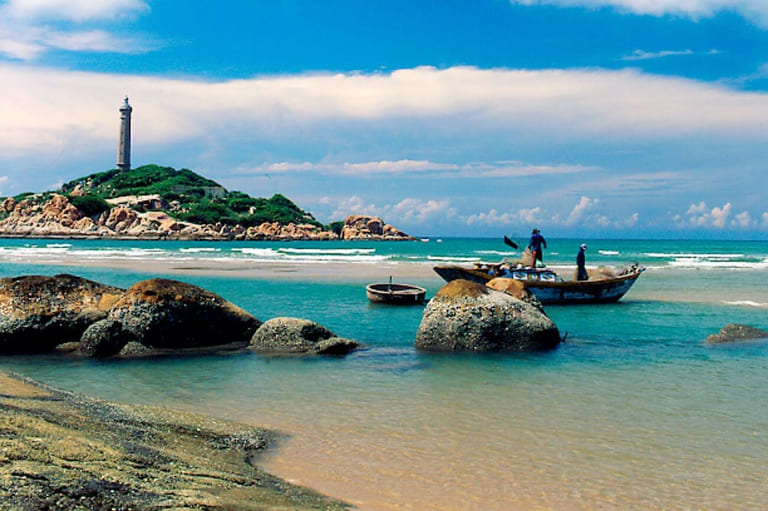
You will see lots of tombs lining the road as you bike along. Burial sites in Vietnam follow feng shui’s ideas, and here you will find an amazing range of tombs placed in calm surroundings. The biggest lagoon in Southeast Asia, the Tam Giang-Cau Hai Lagoon, is wide across the mouth at the southern end of the peninsula.
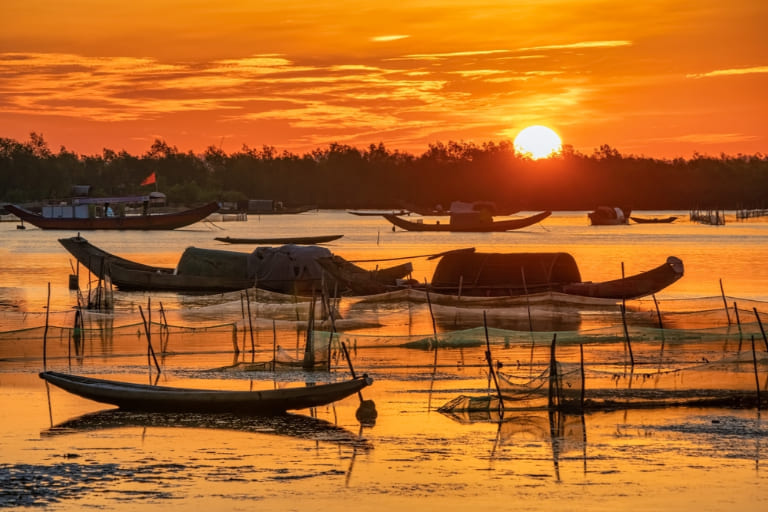
You will pass the calm lagoon, which provides the ideal getaway from the throngs, continuing south on QL49B. If you have time, think about spending a night at the Verdana Lagoon Resort, where accommodations overlook the sea—ideal for a quiet getaway. From here, you can keep down peaceful backroads via Chan May Bay and Canh Duong Beach to Lang Co.
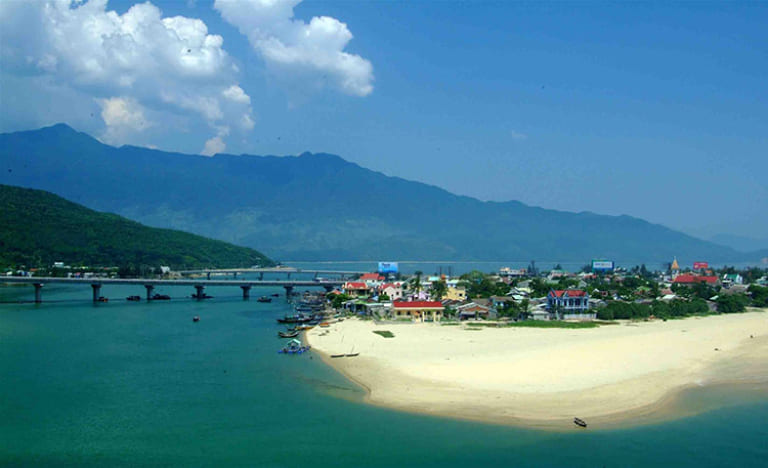
Lang Co is a little stretch of land tucked between Lap An Lagoon and the sea. It’s a terrific area to unwind with a nice beach, some resorts, and excellent seafood. You can also keep along Trinh To Tam street, which runs beside the lagoon’s western coast. This is a peaceful trip with amazing views free of traffic.
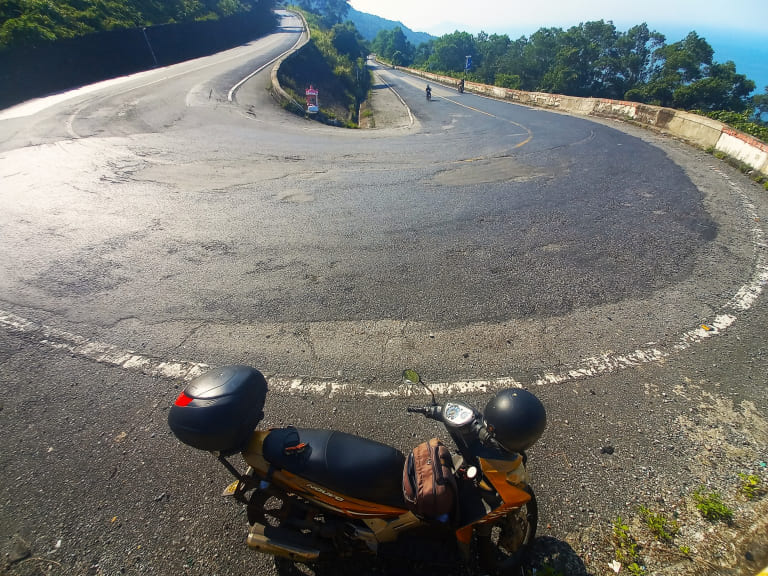
At last, the road hugs the mountainside as you get toward the Hai Van Pass, where sea meets green peaks. Motorbike aficionados will find this road to be a legendary ride; its natural beauty is unparalleled.
>>> Explore Phong Nha by Motorbike: A Thrilling Adventure in Vietnam
Practical Travel Tips for the Golden Loop
One should be ready before starting the Golden Loop excursion. These pointers help to guarantee a seamless and fun travel.
Accommodation and Transport
Along the Golden Loop, there are several places to stay from luxury resorts to cheap hostels. While Da Nang provides elegant, modern lodging with breathtaking sea views, Hoi An boasts little boutiques hotels. Regarding transportation, motorbiking is the most often used method to tour the loop since it provides flexibility and an exciting approach to go on the trip. Should you find riding a bike uncomfortable, you can alternatively rent a car, use a bus, or join Vietnam Motorbike Tours for the route.
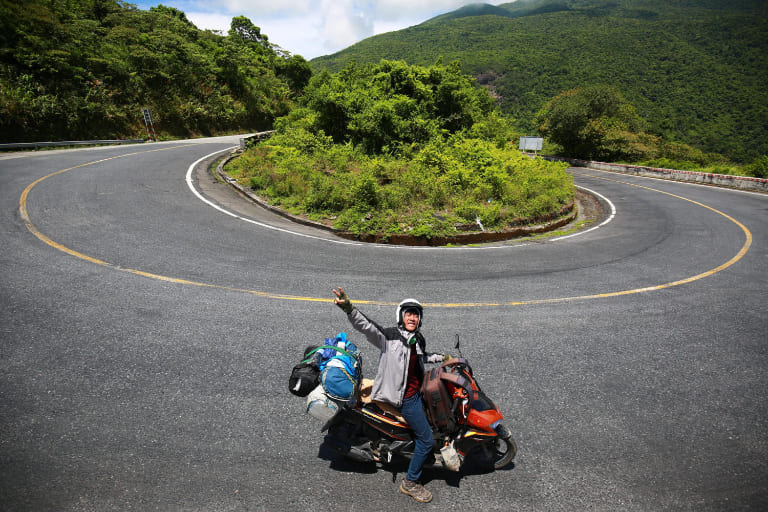
Safety Tips for Road Trips
Always don a helmet and safety gear when riding a motorbike along the Golden Loop. Particularly across Hai Van Pass, the roads might be difficult, hence one must be constantly vigilant. Before leaving, it’s also wise to check the weather forecast since fog or heavy rain could make driving conditions hazardous. Having a trustworthy GPS or a local guide also will enable you to easily negotiate the roadways.
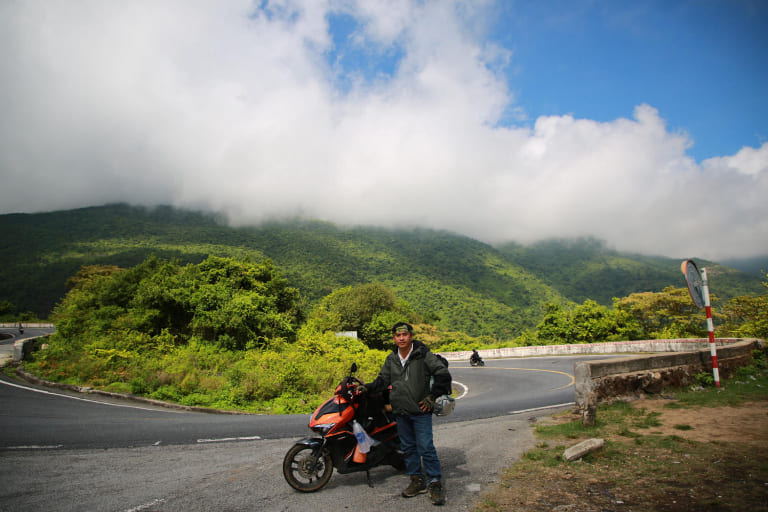
The Golden Loop is one of Vietnam’s most iconic and rewarding road trips. It’s about the trip itself, the meandering roads, changing scenery, and rich history right in front of your eyes, not only about the locations. The Golden Loop is a must-do event that will leave you with lifelong memories regardless of your interests—history, adventure, or just exploration of other cultures.
Related Posts:
- Beautiful Routes in Central Vietnam: Scenic Adventures You Can’t Miss
- Quang Ngai Loop – Travel Guide to Vietnam’s Hidden Scenic Route
- Hoi An to Hue by Motorbike: Uncover A Scenic Adventure Through Vietnam’s Heart
- Discover the Muong Long Loop – Vietnam’s Scenic Road Adventure
- Ha Giang Loop Motorbike Tours – A Journey of Discovery






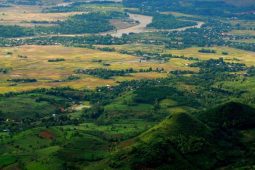

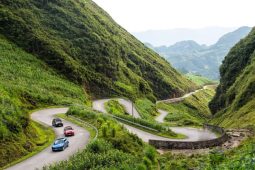
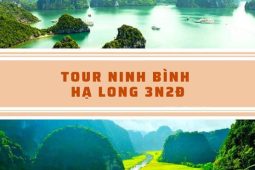

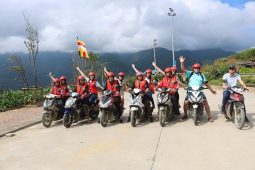
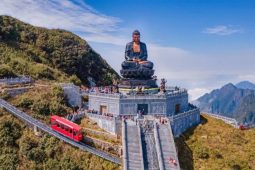
Be the first to comment!